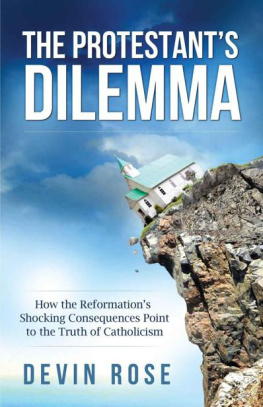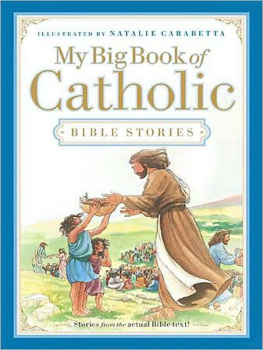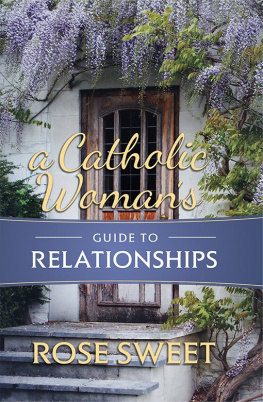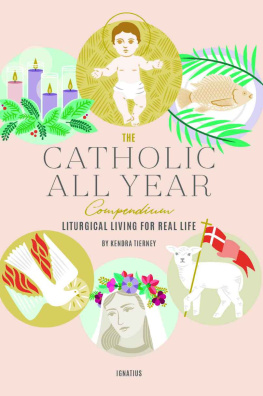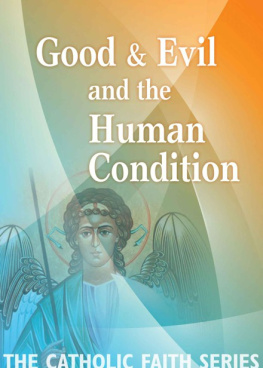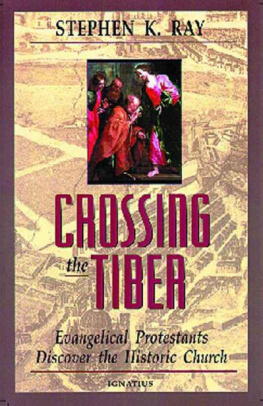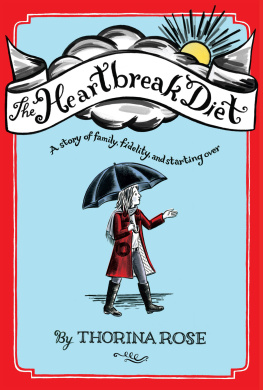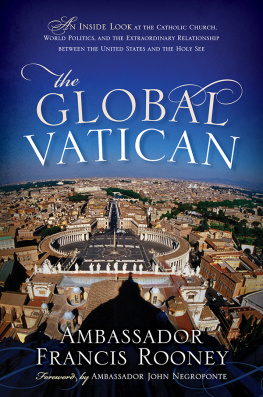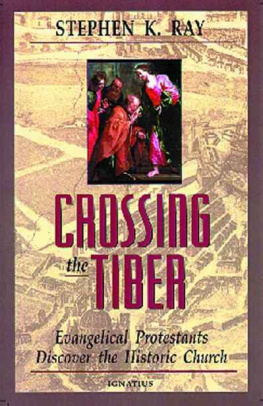Devin Rose - Navigating the Tiber: How to Help Your Friends and Family Journey Toward the Catholic Faith
Here you can read online Devin Rose - Navigating the Tiber: How to Help Your Friends and Family Journey Toward the Catholic Faith full text of the book (entire story) in english for free. Download pdf and epub, get meaning, cover and reviews about this ebook. year: 2016, publisher: Catholic Answers Press, genre: Religion. Description of the work, (preface) as well as reviews are available. Best literature library LitArk.com created for fans of good reading and offers a wide selection of genres:
Romance novel
Science fiction
Adventure
Detective
Science
History
Home and family
Prose
Art
Politics
Computer
Non-fiction
Religion
Business
Children
Humor
Choose a favorite category and find really read worthwhile books. Enjoy immersion in the world of imagination, feel the emotions of the characters or learn something new for yourself, make an fascinating discovery.

- Book:Navigating the Tiber: How to Help Your Friends and Family Journey Toward the Catholic Faith
- Author:
- Publisher:Catholic Answers Press
- Genre:
- Year:2016
- Rating:3 / 5
- Favourites:Add to favourites
- Your mark:
- 60
- 1
- 2
- 3
- 4
- 5
Navigating the Tiber: How to Help Your Friends and Family Journey Toward the Catholic Faith: summary, description and annotation
We offer to read an annotation, description, summary or preface (depends on what the author of the book "Navigating the Tiber: How to Help Your Friends and Family Journey Toward the Catholic Faith" wrote himself). If you haven't found the necessary information about the book — write in the comments, we will try to find it.
Devin Rose: author's other books
Who wrote Navigating the Tiber: How to Help Your Friends and Family Journey Toward the Catholic Faith? Find out the surname, the name of the author of the book and a list of all author's works by series.
Navigating the Tiber: How to Help Your Friends and Family Journey Toward the Catholic Faith — read online for free the complete book (whole text) full work
Below is the text of the book, divided by pages. System saving the place of the last page read, allows you to conveniently read the book "Navigating the Tiber: How to Help Your Friends and Family Journey Toward the Catholic Faith" online for free, without having to search again every time where you left off. Put a bookmark, and you can go to the page where you finished reading at any time.
Font size:
Interval:
Bookmark:
Na v igating
the Tiber
How to Help Your
Friends and Family
Journey Toward the
Catholic Faith
Devin Rose
Navigating the Tiber
2016 by Devin Rose
All rights reserved. Except for quotations, no part of this book may be reproduced or transmitted in any form or by any means, electronic or mechanical, including photocopying, recording, uploading to the Internet, or by any information storage and retrieval system, without written permission from the publisher.
Unless otherwise noted, biblical citations are taken from the Revised Standard Version of the Bible ( 1971 by Division of Christian Education of the National Council of the Churches of Christ in the United States of America).
Published by Catholic Answers, Inc.
2020 Gillespie Way
El Cajon, California 92020
1-888-291-8000 orders
619-387-0042 fax
catholic.com
Printed in the United States of America
Cover design by Devin Schadt
Interior design by Claudine Mansour Design
ISBNs
978-1-941663-77-6
978-1-941663-78-3 Kindle
978-1-941663-79-0 ePub
To George Martinez
Introduction
A Vexing River
Since its founding along the Tiber in the eighth century B.C., Rome has been identified with that unruly river. Thousands of years later, the phrase Crossing the Tiber came to be used for the conversion of Protestants to Catholicism. I made my crossing in 2001, and since then have had the honor of accompanying many friends and family along theirs.
Historically, the Tibers flooding and silt meant trouble for Roman mariners. The spiritual journey across the river to the Catholic Church is often no less tricky for our Protestant friends. How can we help them chart the right course? How can we journey with them, to help them understand the Church and consider its claims? In this book I hope to answer those questions.
Equipping Your Ship
Before we begin, understand that it is not enough just to learn apologetics arguments and lay them on your friends. Much more is required, beginning at the human level with friendship. If you are not first and foremost a good friend (or brother, sister, son, etc.), then no amount of brilliant apologetics will help you. The perception of the messages quality is influenced by the character of the messenger. The important thing to remember is that, whether or not your friend becomes Catholic, you value his friendship and earnestly desire his good. Keep that in mind when the discussion starts getting heated and tense. St. Peter, the first pope, directed Christians to do exactly this in 1 Peter 3:15: Always be prepared to make a defense to any one who calls you to account for the hope that is in you, yet do it with gentleness and reverence .
Do you read the Bible? If not, start to now! Both Old and New Testaments are important, but the New Testament is primary. If you are a good self-starter, just dive in and start reading the New Testament. If you need more guidance, look for a good Bible study at a nearby parish or go to a Catholic bookstore and ask if it carries individual Bible study guides.
Reading the Bible serves two purposes. First, you will benefit from reading the inspired word of God, coming to know Christ more deeply. Second, you will grow in familiarity with the books of the Bible, their contents and authors, all of which will help you in your dialogue with your Protestant friends. Nothing makes you more credible in the eyes of Protestants than regular Bible reading. An Evangelical friend of mine once interrogated me and another Catholic friend at lunch and asked if we read the Bible often. I was able to say yes, and that carried significant weight in his mind. To fervent Protestants, a person who claims to be a Christian but who doesnt read the Bible is at best ignorant and at worst a hypocrite.
Another indispensable tool for your utility belt is the Catechism of the Catholic Church (CCC). This handy work distills 2,000 years of Catholic teaching into an accessible book, explaining the most important doctrines of the Church with supporting biblical verses and quotations from the Church Fathers, popes, and saints. Read through it all or use it as a topical resource for Catholic doctrine as well as a jumping-off point to go deeper in a particular area that interests you.
You should also go deeper into apologetics specifically by reading some of the books I suggest throughout this book and by listening to programs like Catholic Answers Live. By doing so you will broaden and deepen your understanding of the Faith and become well-versed in the most common argument and counter-arguments that arise in discussions with Protestants.
The Lay of the Land
As a Catholic hoping to lead your friend to full communion, you have the challenging task of not only learning your own Faith, but also coming to grips with the wide-ranging beliefs of Protestantism. Begin by learning what your friend believes by asking him questions. Get to know his theological ideas and the teachings of his denomination, and his own story of conversion to Christ. Knowing who you are talking to is a vital part of having a fruitful discussion. Nothing frustrates progress like misconceptions and unfounded prejudiceswhich can occur just as easily on both sidesso be on the lookout and dispel them as soon as you can.
Every journey by sea requires you to chart a course, and so this book is organized in a way that flows naturally from one argument or topic of conversation to the next, in an order that I have found to be the most effective. Of course, every conversation is different, and you should not be afraid when your discussion inevitably diverges from the course presented here. Just remember that if you start getting lost at sea, you can gently steer the conversation back to the key arguments presented here. Likewise, we will focus on the strongest and most common replies and counter-arguments that are encountered in dialogue, but it is impossible to foresee every response that your friend might make. Truly, Ive heard some puzzling replies in my own discussions with friends! And Ive also heard some that made me step back and really think. Friendship runs both ways. You must be willing to critically examine your own beliefs and be open to growth and deeper conversion. Expecting that of your friend but not of yourself is disingenuous.
Not all friends make good dialogue partners. Some are apathetic about the differences between themselves and Catholics. Others are so certain that their particular beliefs are correct that they see no point in discussing them with Catholics. You must gauge their level of interest, openness, and your degree of friendship to get a feel for where they are at and whether discussions with them would have a good chance of bearing fruit.
Red Flags
Many Protestants simply arent interested in debating doctrines that they believe in, let alone examining the foundation that underlies those doctrines. They might be uninterested for a host of reasons: they are weak in their faith; they would never consider converting because it would hurt their family; they are sure they are in the truth; they subscribe to lowest common denominator Christianity and think Catholics and Protestants are both fine, so why worry; the list goes on.
You will be able to spot a person with such an attitude fairly easily. Once you try out several of the lures described below and get no bites from themor worse, rebuffsconsider spending your time talking with another friend instead. You cant sail your ship in a dead calm, or fabricate a gust of wind to fill another ships sails.
You will also run into Protestants who are virulently anti-Catholic. They may send you links or videos describing the pope as the Antichrist and the Catholic Church as the whore of Babylon from the book of Revelation. These kinds of Protestants have swallowed hook, line, and sinker a form of Protestant fundamentalism that makes them particularly hardened against Catholicism. That fact does not mean that you should avoid engaging them necessarily, but know that you are in for a difficult battle, one in which they will be extremely closed to listening to anything favorable toward the Church.
Next pageFont size:
Interval:
Bookmark:
Similar books «Navigating the Tiber: How to Help Your Friends and Family Journey Toward the Catholic Faith»
Look at similar books to Navigating the Tiber: How to Help Your Friends and Family Journey Toward the Catholic Faith. We have selected literature similar in name and meaning in the hope of providing readers with more options to find new, interesting, not yet read works.
Discussion, reviews of the book Navigating the Tiber: How to Help Your Friends and Family Journey Toward the Catholic Faith and just readers' own opinions. Leave your comments, write what you think about the work, its meaning or the main characters. Specify what exactly you liked and what you didn't like, and why you think so.

